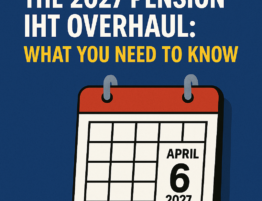
Can I Retire at 55
Like a seasoned marathon runner eyeing the finish line, you’ve paced yourself for a career that you hope can end at 55, well before the standard retirement age.
As you chart the course towards this milestone, it’s important to understand that retiring early isn’t merely a matter of wishful thinking but a strategic move that requires meticulous planning and a clear-eyed assessment of your financial landscape.
You must ask yourself if your pension pot is buoyant enough to keep you afloat for potentially 30 years or more of post-work life.
The decisions you make now about savings, investments, and expenditures could dictate the rhythm of your future years.
To navigate this terrain with confidence, you’ll need a map that outlines not only how to draw your pension at this early age but also how to optimize it for a life of sustained comfort.
The question remains: Do you have the right tools in your arsenal to retire at 55, and what might you still need to secure to make this vision a tangible one?
Let’s examine the strategies that could help you cross the finish line with your finances in winning form.
Key Takeaways
- Accessing a pension at 55 is possible, but the age threshold will increase to 57 by 2028.
- Drawing a pension earlier may have tax consequences and longevity risk, so exploring options like deferring pension or part-time work is important to avoid financial shortfalls.
- Seeking professional advice can help. They have experience in planning early retirement and will also tell you if you have unrealistic goals.
- It is critical to determine the income needed to sustain the desired lifestyle in retirement, considering factors like inflation’s impact on purchasing power and additional sources of income or investments.
Can I draw my pension at 55
Yes, you’re currently able to access your pension pot at 55, but this threshold is set to increase to 57 by 2028.
If you’re in a defined contribution pension, you can access just the tax-free cash if you wish or combine this with taking a taxable income. If you’re in a defined benefit scheme, you’re allowed to take your pension early, but you’ll suffer an early retirement penalty on your income, and you’ll have to take the income and tax-free cash at the same time.
To ensure you don’t face financial shortfalls later in life, you should explore all options, like deferring your pension or continuing part-time work.
When will it change to 57
Individuals planning to retire early should note that the age at which one can access pension pots is set to increase from 55 to 57 in 2028, necessitating adjustments to retirement strategies. Here’s what you need to consider:
Understanding the Shift
| Birth Year | Minimum Access Age Before April 6, 2028 | Minimum Access Age After April 6, 2028 | Notes |
|---|---|---|---|
| On or before April 6, 1971 | 55 | No change (55) | Not affected by new legislation |
| April 7, 1971 – April 5, 1973 | 55 | 57 | Access window between 55th birthday and April 5, 2028. |
| After April 5, 1973 | 55 | 57 | Delayed access by 2 years. |
Can I take my pension earlier than 55
Whilst you have to adhere to the regulated minimum age to access your pension, there are a few exceptions.
You may qualify for taking your pension early through ill health. This is if you have less than a year to live and can be qualified by a medical professional.
If you joined a scheme that had a protected retirement age. Some schemes allowed for members to retire from the age of 50; these no longer exist, but if you are part of a scheme that offered it, you can still use this benefit.
Some people choose to access their pension before 55 with the understanding that they’ll be heavily penalised. The legislation states that a tax levy of 55% will be charged against those who access their pension before 55 so it’s only in very unique circumstances this should be considered.
Planning for retirement at 55 or 57
It’s not as simple as just deciding you want to retire early because you’ve had enough of work; you need to plan your path forward over the next 30+ years. You need to consider saving, expenditure needs, big events (such as moving house or university fees) and factor in inflation.
It’s also important to consider your partner’s pension provisions and the timing of your state pension to ensure a seamless transition into retirement.
How much Income will I need?
To ensure a comfortable retirement at 55 or 57, you’ll need to carefully calculate your income requirements, typically aiming for 70% of your pre-retirement earnings.
To establish if you have enough to retire, consider several key factors:
- Retirement Income Needs
- 70% Rule: Aim for an income that’s 70% of your pre-retirement earnings.
- Savings: Factor in how much of your savings you’re going to use to supplement income or whether your savings are going to provide growth/interest to supplement income
- Lifestyle: You need to sensibly calculate what type of lifestyle you desire. Are you just after income to cover minimum costs, or do you want to be comfortable with two holidays a year and a new car every three years?
A useful way of determining this is to write down all your costs now and what these may look like if you retire tomorrow. This will show the change in required income. It’s a useful exercise and can often be humbling, but it manages expectations.
Will inflation impact my income?
Inflation invariably affects your retirement income, necessitating adjustments to ensure your pension pot maintains its purchasing power over time. You must account for the inflation impact on your income when crafting your retirement plan. If you’re pondering how much income you’ll need, remember that rising living costs can erode your savings faster than anticipated.
To afford to retire at 55 or 57, you’ll need to adjust your expectations and savings goals accordingly. Regular reviews of your retirement strategy help you stay ahead of the inflation curve, ensuring you can afford to retire comfortably.
The last few years have shown us the impact ignoring inflation might have. With annual growth in double digits, the pension income you forecast just might not go as far as you planned.
What other source of income/investments can I use?
Diversifying your income streams can significantly enhance your financial security when retiring at 55 or 57, allowing you to rely less on your pension and more on alternative investments and earnings. Here’s how you can broaden your financial foundation:
-
Private Pension & Investment Income:
-
Enroll in a private pension scheme for additional retirement savings.
-
Invest in stocks, bonds, or mutual funds for growth-oriented investment income.
-
Retirement Investment Strategy:
-
Develop a strategy that balances risk and return, accounting for your retirement timeline.
-
Consider annuities for a steady income stream in retirement.
-
Additional Income Sources:
-
Explore rental income from investment property.
-
Engage in part-time work or consultancy to supplement your pension.
Does my spouse/partner have a pension income?
Have you factored in your spouse’s or partner’s pension income as part of your retirement planning for an early departure from the workforce at 55? Understanding both your personal pension and your spouse/partner’s pension is paramount. Estimating the combined pension income, whether from workplace pensions or other pension schemes, can significantly affect your financial readiness for retirement at an earlier age.
Utilize pension calculators to gauge the total income you both could expect if you plan to retire at age 55. This step not only clarifies your joint retirement outlook but also aligns your savings efforts.
When will i get the state pension?
While considering you and your partner’s combined pension income for early retirement, it’s also essential to determine when you’ll be eligible to receive the state pension. The age at which you can get your state pension depends on your date of birth and National Insurance record.
The easiest way to do this is by checking on the government website. This will tell you when you’ll get the state pension and whether you’re up to date with your National Insurance contributions.
Cashflow planning
Understanding your forecasted income and outgoings and the effect inflation/growth will have on your pension/savings is a key part of planning.
Arthur Browns Wealth Management – What is cashflow planning? from CashCalc
You’ll need to assess your total income, including pensions and investments, to ensure it aligns with your anticipated costs.
If you’d like us to create a cash flow plan for you, log on here.
How can I use my investments to provide an income?
Strategically leveraging your investments to generate a consistent income stream is a critical component of cash flow planning for retirement at 55. To retire early and maintain your desired lifestyle, you’ll need to assess how much do I need and establish multiple income sources.
- To diversify your portfolio, understand where your pension is invested and how much more you may need.
- Dividends: Invest in dividend-paying stocks for regular income.
- Interest: Allocate funds to bonds or savings accounts.
- Rental Properties: Consider investment properties for ongoing cash flow.
Regularly reviewing and adjusting your investment strategy is essential to keep up with market conditions and your changing income needs. It’s wise to consult a financial advisor to optimize your pension pot to retire comfortably.
What are the retirement options at 55 or 57
If you wish to retire at 55 or 57, you’re faced with key decisions regarding annuities and pension drawdown options, and you must understand pension rules.
Annuities provide a guaranteed income for life, which can offer financial security, although they may limit access to your capital.
On the other hand, a pension drawdown allows for more flexibility and potential for growth, but it requires careful management to avoid depleting your fund prematurely.
Annuities
When considering retirement at 55, annuities offer a reliable income stream by converting your pension pot into regular payments. If you’re aiming for early retirement at these ages, understanding how annuities work is crucial, along with finding out how much state pension you’ll need. Here’s what you need to know:
-
Types of Annuities
-
Fixed: Provides consistent payments.
-
Indexed: Aims to adjust each year with inflation or a set rate.
-
Benefits
-
Stability: Guarantees income for life.
-
Simplicity: Easy to manage as you take your pension.
-
Considerations
-
Rates: Fluctuate, so timing matters.
-
Pot Size: Assess if you have a good pension pot at retirement to ensure sufficient income.
- Health/Lifestyle: Annuities take into consideration your health and lifestyle habits, such as smoking.
Carefully evaluate if an annuity suits your financial situation and retirement goals.
Pension Drawdown
While annuities provide a stable income stream for early retirees, pension drawdown offers a flexible alternative, allowing you to take a tax-free lump sum at 55 while keeping the remainder invested.
However, to avoid the risk of running out of money, it’s important to work out how much you need in your pot to retire at 55 comfortably. Take into account your fixed costs and consider unexpected expenses like healthcare.
Remember, the pension freedom age will rise to 57 in 2028, so planning ahead is essential. It’s also vital to be mindful of market fluctuations, as your drawdown pot is subject to investment risks.
What else do I need to consider?
You’ll need to consider how inflation could erode your purchasing power over time, making it crucial to plan for increasing costs.
It’s also essential to understand how income tax will affect your withdrawals from your pension pot.
Lastly, realistically assess your and your spouse’s life expectancies to ensure your savings don’t fall short.
Inflation
Consider the pervasive effects of inflation on your retirement funds, as it can significantly diminish the buying power of your pension pot over the years. When you’re planning to retire at 55, it’s crucial to understand how inflation can challenge your financial security.
- Inflation and Retirement Planning:
- Evaluate how inflation will affect your need to retire with enough funds at the age of 55.
- Assess the growth of your pension fund in real terms, accounting for inflation.
- Strategize ways to save for retirement that consider the long-term impact of inflation.
Inflation can erode the value of your savings, making it essential to adopt an analytical approach to ensure you can maintain your desired lifestyle. Professional guidance can help you navigate these complexities, ensuring your retirement plan is robust against inflationary pressures.
Income Tax
Understanding the erosive effect of inflation on your retirement funds is important, but equally important is grasping how income tax will influence your available pension income. When you retire at 55, you’ll need to consider how your pension pot is taxed. Whether you’ve contributed to a workplace or personal pension scheme for 35 years, the amount you receive after taxes can significantly affect your ability to take early retirement.
If you stop work at 55 and don’t have any other taxable income, you can use your personal allowance of £12,570 before any tax is paid. This can be combined with taking tax-free cash to provide an annual income where you don’t pay tax. However, once you reach state pension age, your state pension income will use most of this personal allowance, so plan accordingly.
How long I and my spouse/partner might live
Estimating the potential duration of your retirement is essential, as living longer than expected could significantly impact the financial resources required for you and your spouse or partner. You’ll need to consider:
- Life Expectancy Factors
- Health conditions and lifestyle choices
- Family history implications
- The average life expectancy trends
By understanding these elements, you can better gauge how much you’ll need in your retirement fund. Aiming for a good pension pot is wise, especially since the average pension pot may not suffice if you retire at 55 and live longer than the norm.
Planning for longevity involves:
- Financial Planning
- Adjusting savings targets
- Investment strategy refinement
- Exploring additional income sources
Can I rely on the state if i run out of money
Relying solely on the state pension as a safety net if you deplete your retirement funds can leave you financially vulnerable, given its limitations and potential insufficiency to cover all living expenses. The state pension, while a cornerstone of retirement income for many, is designed to provide only a basic standard of living. If you’re aiming to retire at 55 without running into financial trouble later, you’ll need to plan beyond the basic pension in the UK.
Can I remortgage my house through an equity release?
While considering your retirement finances beyond the state pension, you might explore the option of remortgaging your home through equity release to enhance your financial flexibility. Equity release can be a viable way to supplement your pension pot, especially if you’re aiming to retire at 55 in the UK.
Here’s what you need to consider:
- Types of Equity Release for Taking Early Retirement at 55:
- Lifetime Mortgage: You borrow against your home’s value and retain ownership.
- Home Reversion Plan: At the age of 55, you may sell a part of your home in exchange for a lump sum or regular payments while continuing to live there.
Eligibility and Amount:
- Your age and property value largely determine how much you can release.
- Typically, the older you’re and the more valuable your home, the more you can access.
Pros and Cons: of taking early retirement at the age of 55.
- Provides financial flexibility without the need to move.
- May reduce the value of your estate and affect means-tested benefits.
Before you remortgage your house, it’s important to weigh the long-term impact on your estate and explore if this aligns with your retirement goals. As always, seeking independent financial advice is recommended to understand the nuances and ensure it’s the right decision for your circumstances.
How will I manage my pension investments?
To effectively manage your pension investments for an early retirement at 55, it’s important to regularly review your portfolio and adjust your strategy to align with your evolving financial goals and market conditions.
Start by estimating your retirement income needs, factoring in the 70% rule—aim to replace this percentage of your pre-retirement income to maintain your lifestyle. Remember, your pension pot in the UK should ideally be well above the average to retire comfortably at 55.
A key aspect is optimizing your pension contributions. Maximise tax incentives and employer matches where possible to boost your savings. You’ll also want to choose the best pension funds that balance growth potential with risk management, considering both stock market performance and the magic of compound interest.
Moreover, be aware of the implications of inflation, income tax, and the state pension on your retirement income. Whether you opt for an annuity or a drawdown scheme, it’s essential to understand how each affects your pension pot’s longevity.
Seeking professional advice can provide personalized guidance to manage your pension investments efficiently. A financial adviser can help tailor your pension contribution strategy, ensuring you’re on a suitable path to meet your retirement goals and find out how much pension pot you need.
What can I do about saving more before I retire
If you’re aiming to retire at 55, it’s essential to assess and increase your savings now to ensure a comfortable retirement. Analyzing your financial landscape and making strategic adjustments can significantly improve your pension pot’s growth. Here are some steps to consider:
-
Utilize Tools and Advice
-
Use a Pension Calculator to gauge how much you need.
-
Seek professional advice to keep your pension strategy on track.
-
Understand income tax implications on your pension income.
-
Budgeting and Expenses
-
Differentiate between essential and non-essential spending in order to determine how much money you need to retire.
-
Calculate fixed costs and anticipate changes to regular expenses.
-
This will clarify how much you need to save to maintain your desired lifestyle.
-
Evolve your investment strategies based on an anticipated need in your pension pot.
-
Investigate how stock market trends and compound interest could boost your pension.
-
Select the best pension fund options to optimize your savings for a good pension pot at 55.
-
Start saving early; the longer you wait, the more you’ll need to contribute monthly.
Retire at 55 Checklist
Before you set sail into the sunset of retirement at 55, using your pension pot, ensure your financial compass is accurately calibrated by using the Unbiased Pension Calculator to estimate your retirement income needs.
Here’s your
-
Assess Your Savings
-
Have you saved enough to match the recommended pension pot?
-
Will your savings withstand the impact of income tax?
-
Is your current savings trajectory aligned with the lifestyle you desire?
-
Understand Your Pension Options
-
Have you accounted for how inflation could erode your pension’s value?
-
Are you aware of how the state pension will supplement your income?
-
Have you decided between an annuity or a drawdown scheme?
-
Plan for the Future
-
Have you considered potential changes in annuity rates and how they might affect you?
-
Are you prepared for uncertainties, such as healthcare costs or market volatility?
-
Do you have a strategy to adjust your plans if circumstances change?
Conclusion
In conclusion, retiring at 55 is achievable with meticulous planning and smart financial strategies, keeping in mind how much money you need.
You’ll need to assess your pension options, manage investments astutely, and possibly boost your savings while constantly asking yourself.
Consider all variables, from cash flow to tax benefits, and use available calculators for a precise retirement target.
Stay informed, make informed decisions, and your dream of an early, comfortable retirement can become your reality.
Don’t forget to utilize the retire-at-55 checklist to keep your plans on track.
Book an appointment to discuss your Pension.
Need Expert Pension Transfer Advice?
As a qualified pension transfer specialist and Chartered Financial Adviser, I provide regulated advice on defined benefit and final salary pension transfers. Book a free 15-minute consultation to discuss your options.








